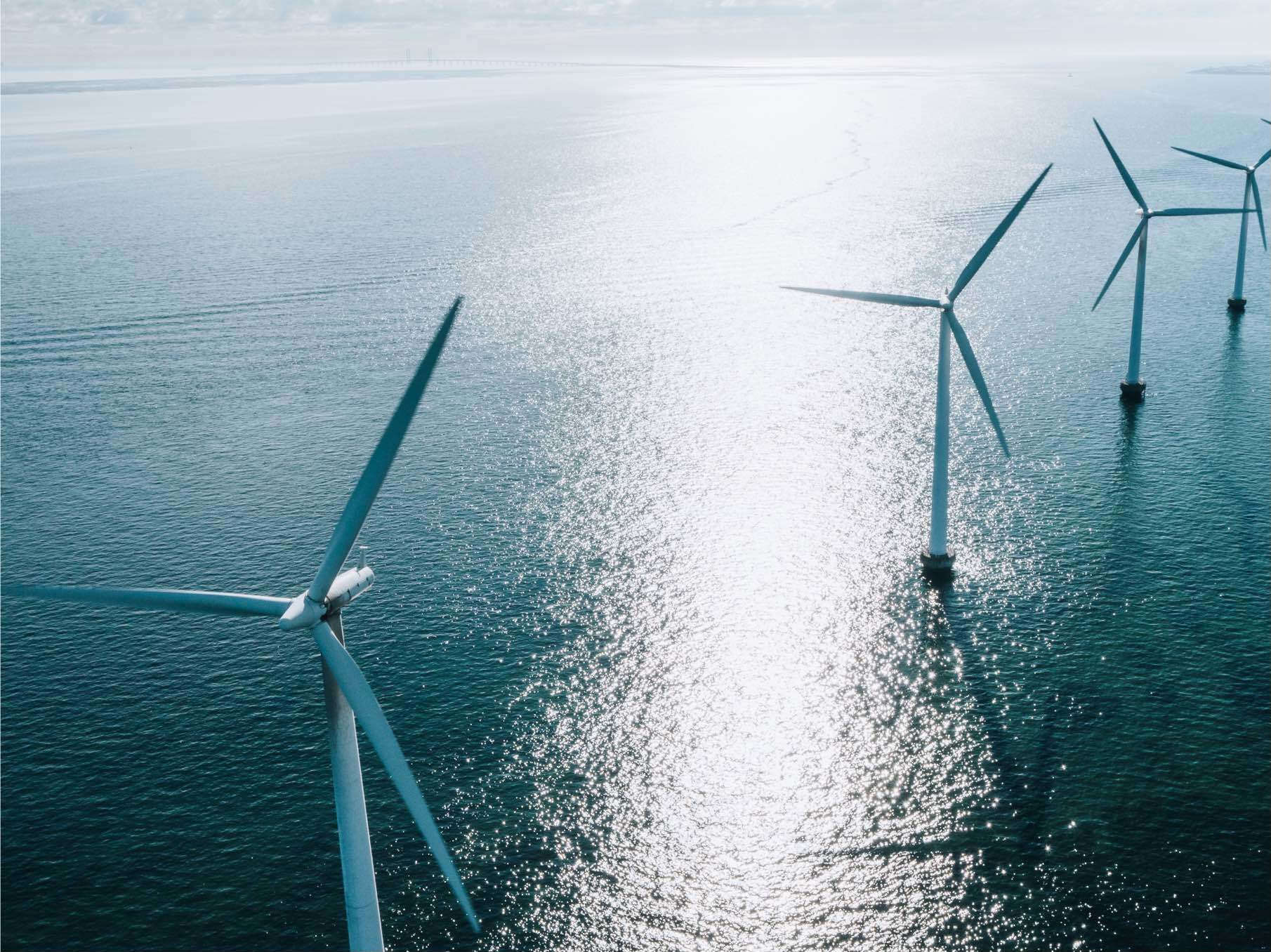
A number of impending issues have coalesced to form a compelling argument that looks towards UK coastlines (and other coastal nations) for a wealth of exploratory innovation opportunities
By Chris Hoe, Futureworx Architect

The UK is leading the world in implementing offshore wind turbine farms as a key contributor to its national energy infrastructure. By 2030, the UK offshore generating capacity will have doubled from 10GW today to 20GW. To put this in context, there was 0GW of electricity being generated offshore at the turn of the millennium.
Yet herein lies problems to solve.
Current turbine inspection methods have become increasingly unviable as they scale (somewhat linearly) with increasing turbine quantities and increasing distance from the shoreline. Additionally, composite blades don’t last forever and are difficult to recycle or repurpose. There is also a significant workforce operating for extended periods in what can be a hostile and dangerous environment during both the construction, operation and maintenance of these highly valuable assets. Ferrying people and parts to and from these sites are not as clean as the energy production they ultimately support. Futureworx are focused on actively addressing these issues today.
Could we do more?
We think possibly yes. There are adjacent problem spaces which could turn to the coastline for answers. Land is increasingly valued, and its use is often highly competed for different applications. Offshore wind farms by their nature are expansive, with typically more than 1km between turbines – this gap increasing as ever larger turbines are produced. Could the space in-between turbines, and the support network which services them be used for additional utility? And what happens when existing wind farms are decommissioned?
Current turbine inspection methods have become increasingly unviable as they scale with increasing turbine quantities and increasing distance from the shoreline.
Upscaling aquaculture
Food security and biofuels may seem somewhat unrelated topics, but perhaps these aquatic spaces could be used in the upscaled production of incredibly fast-growing kelp crops – up to 18 inches per day in ideal conditions.
Also, seaweed is a significant part of Asian diets but under-utilised in Europe. Seaweed as food may not immediately appeal, but perhaps sustainable and supply chain resilient biofuels and pharma products do – both could be manufactured from certain varieties of the seaweed family.
However, excitement should be tempered on a number of fronts. Above all, local marine ecology must remain in balance. Therefore, the question of where Futureworx and Marshall could contribute effectively in this arena is an open one, but that shouldn’t stop us exploring.
Floating infrastructures
If not in the water, how about on the water? Marshall are experts in integrating technology into deployable infrastructures, and developing complex systems. What could you do with a moored, repurposed cargo mega-vessel laden with containers filled with systems technologies?
Perhaps vertical farming can contribute. What sets out as 70 acres in physical terms could realise the equivalent of 700-1,400 high yield acres if forecast developments in vertical farming techniques mature.
Singapore has set strategic targets to produce 30% of the nation’s nutritional needs locally and sustainably by 2030. Almost six million people live in the island city-state which is roughly the size of the Isle of Wight. In contrast, about 143,000 people live on the Isle of Wight. That is to say, there are wealthy, land poor countries with clear aspirations which might consider such ‘floating laboratory’ concepts as viable experiments and not complete lunacy.
Lastly, it is regularly reported that some coastal populations are subject to large disparities in living standards compared to the rest of the UK, by a number of different metrics. Perhaps investing in R&D and innovation opportunities which might ultimately support new business productivity in these coastal communities would provide the ‘levelling up’ so often talked about, but rarely delivered. Maybe that person you come across gazing optimistically out to sea is on the journey of doing just that.